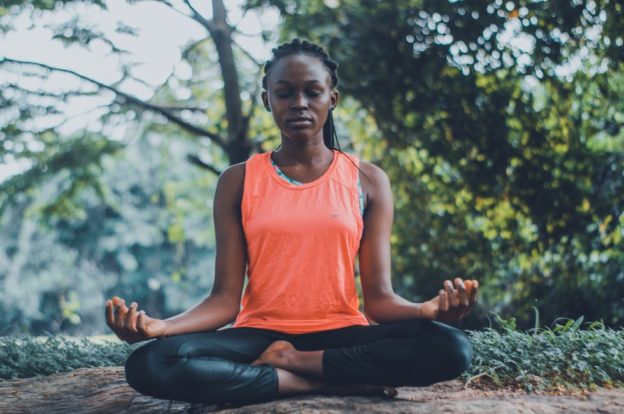During active substance abuse, you can neglect your body’s needs. Many women experience co-occurring eating disorders as well. As you begin to heal, your body goes through many changes. Ultimately, you are looking to achieve a balance in both nutrition and exercise to restore physical health and wellness.
Nutrition: Giving Your Body What It Needs
There is a lot of focus on food and what constitutes a balanced diet. You will get different information from different sources, so which one is correct? The correct source for what your body needs is your body itself. As your body begins to heal, you will naturally crave the foods and portions that you need.
During early recovery, you are likely to experience a lot of powerful food cravings, such as sugary, salty, or starchy foods. Your body is still adjusting to the changes as it cleanses from substances, and these cravings are normal. Eventually, your body will reach homeostasis and should crave foods with more balance. Eating what your body tells you is okay.
Balance Without Restriction
Where disordered eating happens is when you start placing judgments on what you are eating, how much you are eating, or how the food will affect your body. Dieting and restricting food are two habits that have been so ingrained in our culture yet are the cause of so much disordered eating.
When you change your thinking about food and stop dieting, restricting, or judging what you eat, your body will naturally tell you what you need, when to eat it, and how much to eat. Finding balance in your eating is about finding balance in how you think about food.
Balance is being able to accept your body as it is. Balance is being able to focus on listening to what your body needs rather than worrying about how you look or what you can or cannot wear. When you are able to allow yourself to eat what feels good for you without restricting yourself because of other worries, you will find your balance.
Finding Your Balance in Exercise
There is also a lot of focus on exercise. Much of that focus is based on how your body will look if you do certain exercises for certain amounts of time per day. However, finding balance in exercise is also about listening to your body, not worrying about what your body looks like.
Increasing circulation and utilizing muscles help repair some of the damage caused by excessive substance use. Taking a walk for 20 minutes a day or doing some yoga is very good for your overall health. Healthcare professionals recommend this level of exercise to maintain wellness and avoid certain health conditions.
There is also such a thing as too much exercise. You can cause damage to joints and bones, other injuries, hormonal imbalances, and depression. Some people get so obsessed with exercising that they prioritize it over friendships, relationships, or responsibilities. Finding balance is about listening to what your body needs.
Using Moderation to Achieve Balance
When it comes to eating or exercising, moderation is always a good rule to follow if you are not sure what your body is telling you. You do not need to read every label and measure every serving size, and you do not need to eat the entire package yourself. If you are unsure how much to exercise, try a short jog, brisk walk, or a simple yoga session five days a week.
What Does Healthy Mean for You?
Achieving balance means finding out what healthy means for you, not following some general diet or exercise plan. What is healthy for you in early recovery will be different from what is healthy for you later on in recovery. Do you have specific health conditions, such as diabetes or celiac disease? Those will influence what you choose to eat. Do you have a heart condition or a physical limitation? Those will influence how you exercise. There are general suggestions about what to do in recovery that can help guide you, but every person is unique and should do what is right for them.
What is healthy for you is different from what is healthy for others, even in recovery. Be sure to consult with your medical professionals and be honest with them about your substance use and a co-occurring eating disorder. Talk with a therapist about healthy thinking surrounding your eating and exercise. Above all else, reconnect with your body and listen to what it is telling you that it needs. As you listen, you will find the balance.
Achieving balance in nutrition and exercise is not about dieting or working out a certain amount every day. Finding balance is about listening to your body as you heal. Your body knows what it needs and how much it needs, and if you are not sure, then use the rule of moderation. Finding out what is healthy for you and your body will help you find the balance you need. The Ho Tai Way – Recovery For Women is a residential treatment center for women with addiction and co-occurring mental health disorders, including eating disorders. Our Costa Mesa, California, facility is a peaceful refuge for your healing. We offer trauma-informed care and group and individual therapy to help you heal and replace negative thinking with new ways of thinking about yourself and your body. Let us help you find the balance in your life. Contact us at (714) 881-8931.









